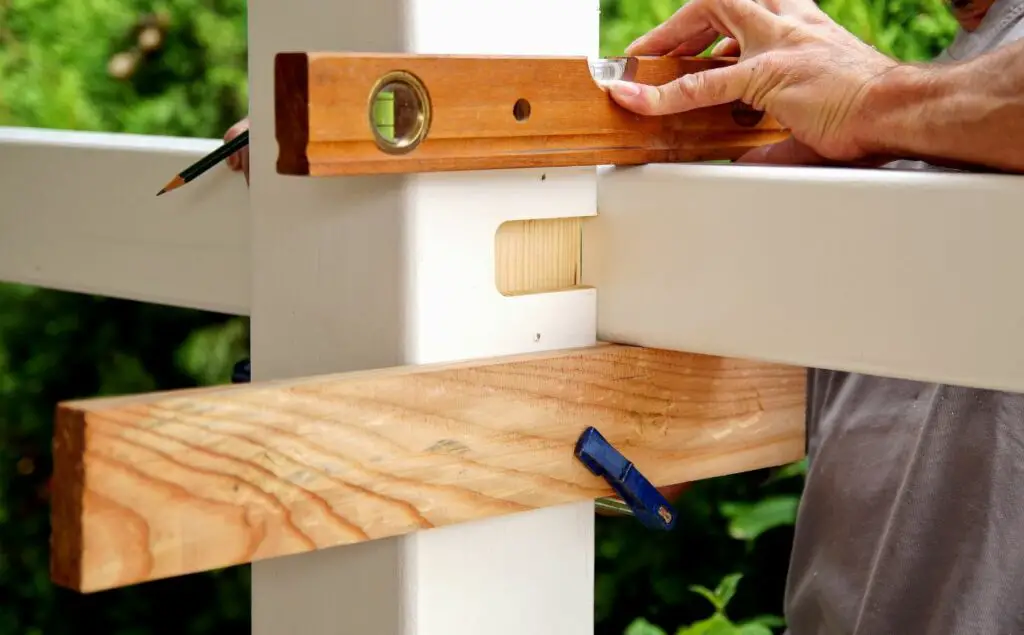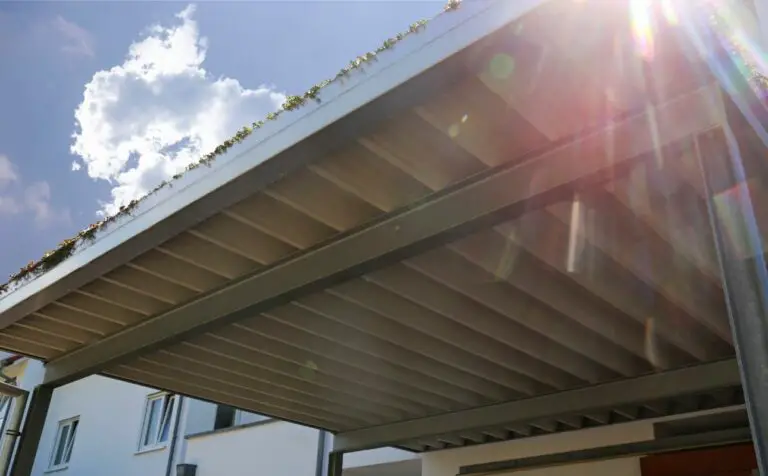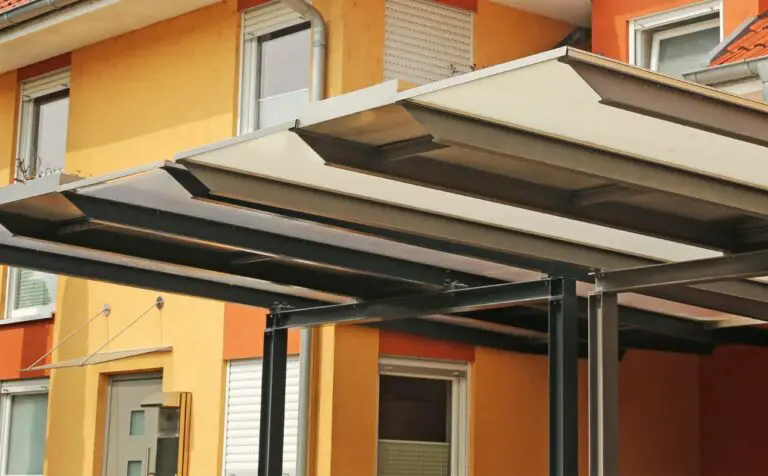Building projects, even seemingly minor ones like constructing a carport, often require obtaining the necessary permits from local authorities. These permits ensure that the construction adheres to building codes and regulations, ensuring safety, structural integrity, and compliance with zoning laws.
However, some individuals may be tempted to bypass the permit process for various reasons, such as saving time or cutting costs. If you are contemplating building a carport without a permit, it is crucial to understand the potential consequences and risks associated with such actions.
We will discuss the risks of building without proper permits, potential consequences that could arise, and why it is essential to follow local building codes and regulations.

Understanding the Permitting Process
An understanding of the permitting process is essential for property owners who intend to undertake construction projects on their premises.
The process involves obtaining approvals from relevant authorities before commencing construction work. One of the primary reasons for obtaining permits is to ensure that the construction project meets all safety and quality standards set by local building codes.
Failure to obtain a permit can have significant cost implications, including fines, penalties, and legal fees incurred when attempting to rectify code violations.
Common mistakes made during the permitting process include submitting incomplete or inaccurate applications, neglecting to secure necessary approvals from other agencies, and failing to adhere to zoning regulations.
Risks of Building Without a Permit
Constructing a carport without proper permitting can result in potential legal, financial, and safety hazards that may significantly impact the individual’s life.
- First off, if local authorities did not approve the construction, insurance coverage for any damages or accidents might be in jeopardy.
- Secondly, DIY installation of a carport may seem like a cost-effective option but can lead to serious safety risks if not installed correctly.
Professional installation ensures compliance with building codes and regulations, reducing the risk of structural collapse or fire hazards.
Furthermore, failing to obtain permits and pass inspections can result in fines and penalties from local authorities. These consequences can result in significant financial burdens on homeowners who choose to build without obtaining necessary permits from their local government.
Potential Consequences
Building a carport without a permit can result in fines and penalties, which may vary depending on the location and severity of the violation. Legal action may also be taken against the owner if they fail to comply with building codes or regulations.
Fines and Penalties
Violating the regulations regarding construction permits for carports may result in financial penalties and legal consequences. The costs associated with obtaining a permit upfront are significantly lower than those that may arise from building without one.
Fines can range from a few hundred dollars to several thousand dollars, depending on the severity of the violation and the local government’s regulations. Additionally, building without a permit may have insurance implications, as some insurers require proof of proper permits before covering any damages related to the structure.
Legal Action
Legal action may be taken against those who fail to obtain the necessary permits for construction projects involving carports, leading to potential legal repercussions and significant financial burdens.
Possible defenses include arguing that the carport is within the allowable size limit or that it was built as a repair or replacement of an existing structure. However, these defenses are not guaranteed to succeed, and hiring a lawyer can further add to the costs.
Moreover, building without proper permits can have long-term consequences on property value and insurance coverage. Due to the lack of compliance with building codes, insurance companies might decline claims relating to accidents occurring in an unpermitted structure.
Demolition of the Carport
The failure to obtain the necessary permits for a construction project involving a carport may lead to local authorities demanding the demolition of the structure at the owner’s expense.
In such cases, the owner may face not only financial loss but also significant inconvenience in terms of time and effort required for the rebuilding process.
Moreover, if it is found that alternative structures have been built without proper permission, it can negatively affect the property value and create legal liabilities for future owners as well.
Ensuring Compliance with Building Codes and Regulations
Compliance with building codes and regulations is crucial for ensuring the safety and structural integrity of any construction project, as well as avoiding potential legal consequences.
Building safety standards are put in place to ensure that structures are designed, constructed, and maintained in a way that minimizes risk to human life and property.
Regulatory compliance involves adhering to the rules set by local authorities regarding permits, zoning, construction materials, electrical systems, plumbing installations, fire safety features, and other aspects of building design and construction.
Failure to comply with these regulations can result in costly fines or even the demolition of the structure.
Importance of Following the Rules
Protecting your property and vehicle is one of the main reasons why following rules and regulations is important. By obtaining permits for any modifications or additions to your property, you ensure that it meets safety standards and is adequately protected.
Avoiding legal issues and contributing to the safety and well-being of your community are also important factors in complying with rules, as failure to do so can result in fines or even legal action.
Protecting Your Property and Vehicle
While it may be tempting to bypass these requirements in order to save time and money, doing so can result in serious legal consequences. Additionally, building a carport without a permit may put your property and vehicle at risk.
DIY installation of a carport may seem like an affordable option, but material costs can quickly add up and mistakes made during the process could end up costing even more in repairs down the line.
Professional installation not only ensures that all regulations are met but also guarantees high-quality workmanship.
Different types of carports exist with their own pros and cons – from lean-to designs that attach directly to existing structures to freestanding options – making it important to consider what will best suit your needs before beginning construction.
Avoiding Legal Issues
Building a carport without obtaining the required permit may seem like a cost-benefit DIY alternative, but it could lead to significant fines and legal issues down the line. Without proper permits, local authorities may deem your carport unsafe or not up to code, resulting in an order to remove it altogether.
Moreover, if someone gets hurt due to the unsafe structure of your carport, you could be held liable for their injuries. Therefore, it’s essential always to check with your local authority before starting any construction project and obtain all the necessary permits before proceeding with your plans.
Contributing to the Safety and Well-Being of Your Community
Collaborative efforts between the government and its citizens help ensure that any structures built on private property are up to code, preventing accidents or disasters that could potentially harm not only those using the structure but also nearby residents.
Building codes are in place for a reason; they provide minimum standards for safety, health, and welfare that must be met by all new construction projects.
Building codes are in place for a reason; they set minimum requirements for welfare, health, and safety that all new construction projects must abide by.lic health and safety while simultaneously avoiding potential legal issues.
The Bottom Line
Building a carport without obtaining a permit can lead to various risks and potential consequences. Failure to follow these rules may result in hefty fines, legal action, and even the demolition of the structure.
Building codes exist to ensure that all structures meet certain standards, which ultimately protect the occupants from harm. By following the proper channels and obtaining the necessary permits, you can avoid unnecessary trouble in your construction project.
Remember that taking shortcuts may seem like an easy option at first, but it often leads to more significant problems down the line. Always prioritize safety and compliance when building any structure on your property.





